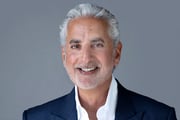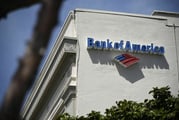
Office address: 1001 Pennsylvania Avenue NW, Washington, DC 20004
Website: www.carlyle.com
Year established: 1987
Company type: investment firm
Employees: 2,200+
Expertise: leveraged buyouts, growth capital, energy, financial services, technology, healthcare, consumer and retail, aerospace and government services, private equity, real assets, global credit, investment solutions, structured credit, real estate
Parent company: N/A
Key people: Harvey Schwartz (CEO), William Conway Jr. (co-founder), David Rubenstein (co-founder), Anthony Welters (director), Sharda Cherwoo (director), Linda Filler (director), James Hance Jr. (director)
Financing status: N/A
The Carlyle Group, headquartered in Washington, DC, is a multinational investment firm managing $435 billion in assets across private equity, alternative asset management, and financial services. Employing over 2,200 professionals, Carlyle operates from 29 offices spanning four continents and runs more than 600 investment vehicles. The firm is one of the largest globally, leveraging its wide network to deliver value and growth for its clients.
The Carlyle Group was founded in 1987 by David Rubenstein, Stephen Norris, William Conway Jr., Daniel D'Aniello, and Greg Rosenbaum as a boutique investment bank. The firm took its name from the Carlyle Hotel, where two founders conceived the business. In 1991, Carlyle gained attention by advising on a $500 million investment in Citigroup by Prince Al-Waleed bin Talal.
During the 1990s, it made a mark in the defense industry by acquiring and selling military electronics firms like GDE Systems and Magnavox. In the 2000s, Carlyle led significant buyouts, including Hertz and Freescale Semiconductor, while facing challenges such as the Hawaiian Telcom bankruptcy. Between 2022 and 2023, Carlyle continued its expansion by acquiring companies like Dainese and making a minority investment in Captrust Financial Advisors.
Carlyle's business spans an array of products and services across key sectors. Below are some of its main offerings:
The Carlyle Group uses its global scale, industry expertise, and deep partnerships to deliver sustainable value across its diverse investment offerings. By applying its full platform to every investment, Carlyle identifies new opportunities, drives business transformation, and fosters long-term growth. This approach has built lasting trust and credibility with partners worldwide.
The Carlyle Group focuses on long-term career growth by investing in employees' professional development and personal well-being. Integrity, collaboration, and transparency are core to Carlyle’s culture, ensuring employees feel valued and supported. It offers a wide range of benefits that promote both physical and emotional well-being, emphasizing balance between work and life:
The organization believes that combining environmental, social, and governance (ESG) factors into their investments leads to better results and more sustainable returns for stakeholders. Their "Sustainable Pathways" report reflects the firm's commitment to navigating complex sustainability issues while strengthening their investment approach. The Carlyle Group aims to enhance their capital stewardship and long-term value creation:
Carlyle values diversity, equity, and inclusion (DEI) as key drivers of performance, aiming to build better businesses by fostering a wide range of perspectives. They believe that diverse teams lead to stronger decisions and continue to focus on creating an inclusive workplace by challenging the status quo. Their initiatives include:
The Carlyle Group is committed to making a positive impact on communities through both their investments and charitable work. They support employees in contributing to their local communities through global volunteer programs and wealth-sharing initiatives. They encourage their professionals to actively engage in efforts that improve the places where they live and work.
Harvey M. Schwartz serves as the CEO of The Carlyle Group and sits on its board of directors. Prior to this role, he worked at several major firms, including Goldman Sachs and Citigroup. Schwartz holds a bachelor's degree from Rutgers University and an MBA from Columbia University, and he currently serves on the boards of several companies.
The Carlyle Group's leadership is made up of skilled professionals who are responsible for shaping the company’s strategy, which includes:
The Carlyle Group seeks to expand into new areas such as clean energy, diversify its portfolio, and increase growth opportunities. A recent strategic partnership with North Bridge ESG will support the origination of clean energy loans, improving Carlyle’s position in real estate and asset-backed finance. This collaboration helps them address market demands while tapping into potential new revenue streams in the growing clean energy sector.
In September 2024, Carlyle partnered with Unison to invest up to $300 million in equity-sharing home loans. This investment aims to help homeowners access home equity with lower payments, matching up with The Carlyle Group’s strategy of scaling up into real estate finance. By entering the growing market of equity-sharing, the company continues to broaden its investment mix and create new revenue opportunities.

Since its launch in 2009, CAIS has facilitated over $25 billion in transactions involving financial advisors.

Former First Republic executive built alternatives platforms at Carlyle Group, RBC.

The bank joins a long list of financial backers funding the $130 billion tech-savvy platform for investing in alternatives.

As private equity pours cash into wealth management, financial advisers should be exposing clients to private equity investments.

Gabriel Hammond's latest venture is setting its sights on private markets
Blackstone has focused on investors with $5 million in assets while Carlyle has partnered with OppenheimerFunds to reach individuals seeking higher yields.

Weighing the pros and cons of the new registered fund

New fund, limited to accredited investors, will target the secondary PE market.
<i>Breakfast with Benjamin:</i> Private equity giant wants in on liquid alts. Plus: QE might have a fueled high-inflation cycle, the small-cap stock ride is ending, time to get some defense in that portfolio, and the poor outlook for the long-term unemployed
Advisers could benefit as retail investors load up on alts.
Six new liquid alternatives funds are part of firm's effort to help advisers handle risk.
Will launch two '40 Act funds to lure financial adviser business
Acquisition expands retail-focused shop's push into alts
